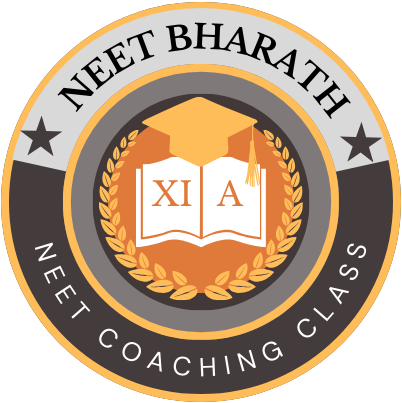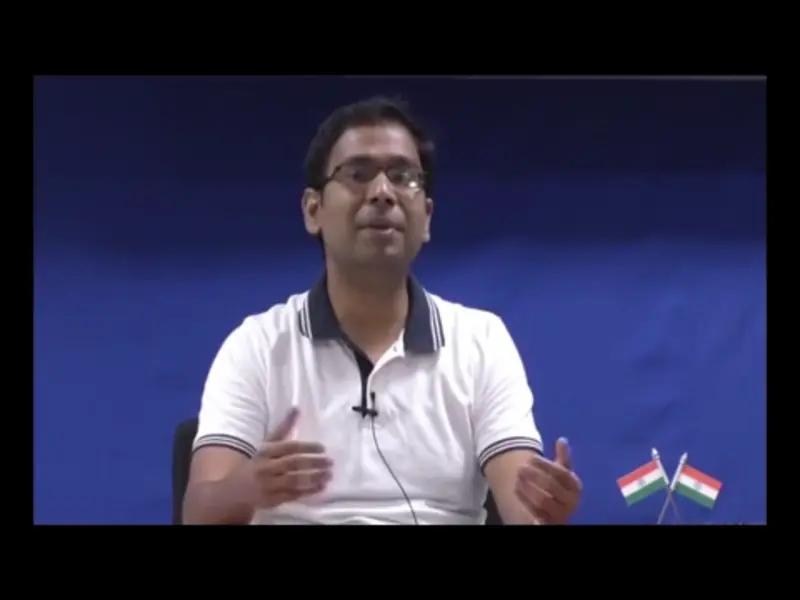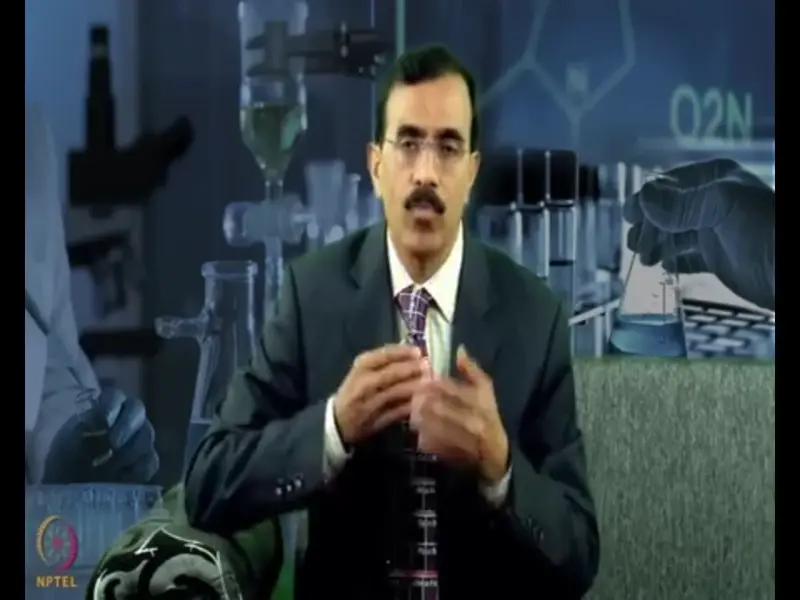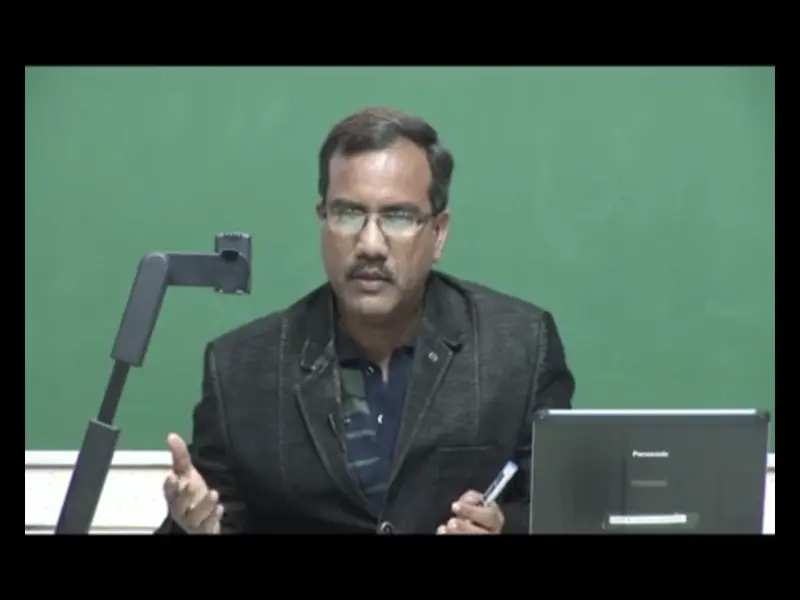

Organic Chemistry: Some Basic Principles and Techniques
Video Lectures For Class 11
(NEET Chemistry)
Available courses 29
Organic Chemistry-Some Basic Principles and Techniques Class 11 NEET Chemistry:
As we know, we come across different types of compounds in nature. Some are man-made. Out of them, organic compounds also form one of the categories.
Compounds
They are of mainly two types
(a) Inorganic: Obtained from Mineral.
(b) Organic: Obtained from plants and animal.
Organic compounds
- They play a vital role in our life.
- They constitute our body, our diet, our medicine etc.
- Earlier, it was thought the has made organic compounds are not possible.
- Later, it was seen that preparation of these compounds are possible. Almost 95% of organic compound are manmade (prepared in laboratory).
Friedrich Wohler: -He gave a blow to vital force theory, as he accidently prepared organic compound in laboratory: -
Organic compound is mainly formed of Carbon. They may be called as Hydrocarbon (compound of Carbon &Hydrogen). In some compounds, Hydrogen is replaced by other elements like N, S etc. Therefore, we can define “Organic Chemistry is study of Hydrocarbon & their derivatives”.
Unique properties of carbon
TETRAVALENCY
It is a characteristic property of Carbon atom by virtue of which it can form four covalent bonds.
Atomic Number =6
1s2, 2s2,2px1,2py2,2pz0
Valency =+4 or -4
It mainly forms covalent compounds.
CATENATION
“The property of forming bonds with atoms of same element and give rise to long chains, branched or un-branched chains.”
In 14th group the Carbon –Carbon bond requires bond dissociation energy equal to 335 KJ. The Sulphur –Sulphur bond requires energy in order of 220kJ.But, the maximum catenation is shown by carbon as it forms strong bond with atom of its own kind.
IMPORTANT FEATURE OF π BONDS
- In C2H4 , the two un-hybridized orbital forming bond are parallel to each other. So, they restrict the molecule in planar shape.
- Because of sidewise overlapping, rotation of one CH2 group with respect to other is hindered, as rotation will break bond. Therefore, only 2 forms are possible.
- For example: C2H2Cl2
(pi) bonds are more reactive sites, as they are placed above and below the plane of bonding atoms. So, more exposed to attacking agent.
You can practice DPPs, Download PDF of Solutions of DPPs, Revise notes for NEET Class 11 Chemistry Chapter 12 Organic Chemistry - Some Basic Principles and Techniques.
Feel free to take a test on Class 11 Organic Chemistry - Some Basic Principles and Techniques Chapter 12 NEET Chemistry, and test your understanding.
If you liked our content on Organic Chemistry - Some Basic Principles and Techniques NEET Chemistry Chapter 12 Class 11, SHARE with your friends!
Organic Chemistry - Some Basic Principles and Techniques NEET Chemistry NEET Chapter 12
NEET Chemistry seems to be a quite difficult subject for a lot of students. But, if you get a very good conceptual understanding of the subject, it can be very interesting for you. We, at Neet Bharath Tutorials, will give our best to make NEET Chemistry Organic Chemistry - Some Basic Principles and Techniques NEET Chapter 12 super-duper easy for you. Learn about Organic Chemistry - Some Basic Principles and Techniques NEET Chemistry in detail with experts at Neet Bharath Tutorials. is what we promise. Learning is a lifelong process. As a student, your focus should always be on learning new facts, concepts and tricks so that you can apply them in real-life scenarios. If your conceptual understanding is clear, you will anyway perform well in your exams. So, please do not just study for the fear of exams or just to score marks, instead learn for the love of learning. We have seen many students mugging up concepts without understanding, which, in turn, makes the subject more difficult and boring for them in the future. Always remember, if your basics are strong, you will be able to understand even the most complex concepts.
We aim at making learning fun as well as engaging for you with our complete end-end learning content with Organic Chemistry - Some Basic Principles and Techniques NEET Chemistry Best videos, NEET pdf download, Notes, complete syllabus of the textbook, tests, and Practice Questions. Neet Bharath Tutorials (formerly called ExamFear Education) is a Free Education platform with more than 10,000 videos on Physics, Chemistry, Maths, Biology, English, Science experiments, tips & tricks, and motivational videos for Classes 6 to 12, NEET, JEE. Learn for Free!
Our team has been on a mission “To make Quality education affordable and accessible to every child across the country” since 2011. We have been one of the pioneers to start teaching through YouTube. Feel free to connect with us on social media:
We, at Neet Bharath Tutorials, will provide you with the best quality videos on NEET Chemistry Organic Chemistry - Some Basic Principles and Techniques with special focus on concepts and a lot of examples, also you can download pdf. Not just that, a quick easy-to-refer and understand Organic Chemistry - Some Basic Principles and Techniques NEET Chemistry NEET Chapter 12 Notes, based on the revised NCERT textbooks. You can completely rely on the study materials created by our experts and can definitely score very well in your exams. You also have the option to download pdf as well as complete all topics of the textbook. All of these mentioned above will be accompanied with:
NEET Chemistry Organic Chemistry - Some Basic Principles and Techniques NEET Chapter 12 DPPs: A set of 20 questions from each chapter for you to attempt and check your understanding. Solutions are also available and can be downloaded in pdf format. Download Organic Chemistry - Some Basic Principles and Techniques NEET Chemistry NEET Chapter 12 DPPs solutions PDF for free. Practice these questions once you have watched the videos of the chapter; try to answer on your own. Once done, refer to the solutions to check if you were right or not. This would improve your problem-solving skills as well as help you revise topics you are less confident with. In fact, our research says that the majority of the students feel that their concepts are clear while attending a class or watching a lecture video. But it is during solving a problem or numerical that they truly get to know if they have understood the concept or not. Therefore, we strongly recommend you to solve the DPPs as soon as you have watched all the videos of that chapter.
NEET Organic Chemistry - Some Basic Principles and Techniques Online Tests: For every chapter, you can take a test of 10 Multiple choice questions. Correct answers along with explanations will be provided after you submit the test. A set of new 10 questions will appear when you try to attempt the test for the same chapter again. This will help you to revise your concepts on Organic Chemistry - Some Basic Principles and Techniques NEET Chemistry. Self-evaluation is one of the best ways for you to understand how much clarity you have got on the concepts of that topic. Based on where you are getting stuck, you can give extra focus on those topics. Taking tests frequently always helps you improve your speed and accuracy.
Organic Chemistry - Some Basic Principles and Techniques NEET NEET solutions: All questions from NEET textbook are solved in detail, along with video solutions for each question. Download Organic Chemistry - Some Basic Principles and Techniques NEET NCERT solutions PDF for free. Students often get stuck while solving the questions in the exercises of NEET textbook. You can watch the NEET solutions in the form of videos with our experts, and can also refer to pdf format on our website as well as app. If you are a student of CBSE or preparing for exams for NEET, JEE, Civil services, NDA etc. NEET textbooks are very important for you. Please note that we have uploaded videos as per the Revised NEET textbooks (2023-24). Therefore, you can completely rely on the content on our website/app.
NEET Chemistry Sample papers: You must attempt a couple of our specially curated sample papers before appearing for your exam. This will boost your confidence and also help you practice. Once you have completed the syllabus, it is very important for you to solve Sample papers. In an exam-like environment, solve the sample paper. Once done, check the answers and understand which are your strong areas and which are the weaker ones. The sample papers are created based on the complete syllabus of a particular subject.
NEET Chemistry Previous Years’ Questions: Questions that appeared in the last 5-7 years along with detailed solutions for better understanding for the entire NEET Chemistry syllabus. This is a very critical step towards your preparation for any examination. This gives you a fair idea of what kind of questions are asked in that particular exam. It also helps you understand the important topics from where the majority of questions are framed. We will provide you with Previous years’ questions of Class 10 and Class 12 NEET exams, as well as NEET, JEE, both in video format as well as PDF format.
- Last but not least, We, at Neet Bharath Tutorials, are on a mission to Promote Neet Education.
If you like our content, Spread the word!
Tips for Students- Never miss a video on Organic Chemistry - Some Basic Principles and Techniques NEET Chemistry
- Make your notes while watching Some Basic Principles and Techniques Class 11 NEET GOC | Concept Add on-Electromeric Effect
- Make a note of all your doubts as you watch Some Basic Principles and Techniques Class 11 NEET GOC | Concept Add on-Electromeric Effect, and ask them in the “Ask Question” section of Neet Bharath Tutorials
FAQs
Question: How should I prepare for my NEET Chemistry exam?
- Watch all our Videos, Notes, NEET Solutions, DPPs for NEET Chemistry
- Download PDF of Solutions, complete syllabus of textbooks is covered in the videos
- Attend LIVE classes to ask your doubts on NEET Chemistry
Question: Can I crack NEET/JEE/Board exam using Neet Bharath Tutorials?
Of course, YES! If you are determined to crack NEET, you can at ease do that with Neet Bharath Tutorials
- Watch NEET Videos on Physics, Chemistry, Biology
- Ask your doubts in NEET/JEE/Board exam LIVE classes
- Refer Notes, DPPs, Online Tests, Practice questions, sample papers, DPPs for NEET
Question: Can I get a good score in NEET Chemistry board exam if I study only from Neet Bharath Tutorials?
Yes, you can. Refer Organic Chemistry - Some Basic Principles and Techniques NEET Chemistry NEET Chapter 12 videos, notes, tests, Daily practice problems, questions, sample papers. Similarly, cover all chapters of the complete syllabus of NEET for NEET Chemistry
Question: How to make use of Neet Bharath Tutorials the best possible way to understand Organic Chemistry - Some Basic Principles and Techniques NEET Chemistry NEET Chapter 12?
- Step 1. Watch all videos, without skipping any video for Organic Chemistry - Some Basic Principles and Techniques NEET Chemistry
- Step 2. Ask your doubts in Ask questions section of Neet Bharath Tutorials
- Step 3. Try DPPs, Revise notes, Download PDF for DPPs solutions, refer NEET solutions for Organic Chemistry - Some Basic Principles and Techniques NEET Chemistry
- Step 4. Take online test, sample paper for Organic Chemistry - Some Basic Principles and Techniques NEET Chemistry
Question: Can I ask my doubts on Neet Bharath Tutorials?
Yes. You can ask your doubts in the Ask Question section of Neet Bharath Tutorials. Alternatively, you can also ask questions on our Android Neet Bharath Tutorials app. We will try to answer your questions within 24 hours.
Question: Are all content on Neet Bharath Tutorials free? or some courses are paid as well?
Neet Bharath Tutorials is a Free learning platform. Neet Bharath Tutorials provides the best videos, notes, pdf, tests, practice questions, DPPs absolutely free of cost. Hope you have watched Free videos on Organic Chemistry - Some Basic Principles and Techniques NEET Chemistry. Did you like them? Neet Bharath Tutorials #FreeHaiParBestHai
If you like the video on Some Basic Principles and Techniques Class 11 NEET GOC | Concept Add on-Electromeric Effect, Do not forget to Share with your friends.
NEET Class 11 Chemistry NCERT Chapter 12 Organic Chemistry - Some Basic Principles and Techniques
In this video, we will cover:
1. Organic Compounds
2. Structural representation of organic compounds
3. Nomenclature of Organic Compounds
4. Electron displacement (Inductive effect)
5. Electron displacement (Electromeric effect)
6. NEET Some Basic Principles and Techniques Class 11 Concepts
7. Some Basic Principles and Techniques Class 11 NEET
8. Some Basic Principles and Techniques Chapter 12 NEET
9. Some Basic Principles and Techniques Concepts for NEET
10. NEET Chemistry Concepts
11. NEET Some Basic Principles and Techniques Concepts
12. NEET Some Basic Principles and Techniques Chapter 12 Class 11 Chemistry
13. NEET Concepts Some Basic Principles and Techniques
14. Some Basic Principles and Techniques NEET
15. NEET Chemistry Some Basic Principles and Techniques
16. Some Basic Principles and Techniques NEET Chemistry
17. NEET Chemistry 2024
18. NEET Chemistry for 2024
19. NEET Preparation 2024
20. NEET 2024 Preparation
21. NEET Chemistry Class 11 Concepts
22. Class 11 Chemistry Chapter 12 Some Basic Principles and Techniques NEET Concepts
23. Some Basic Principles and Techniques Class 11 Chemistry NEET
24. Neet Bharath Tutorials NEET pe Jeet LH Chemistry
25. Chemistry for NEET Chapter 12
26. CBSE Class 11 Chemistry Some Basic Principles and Techniques NCERT Chapter 12 NEET
27. Some Basic Principles and Techniques NEET Concepts for 2024
28. Some Basic Principles and Techniques NEET for 2024
29. Some Basic Principles and Techniques NEET Coaching
30. NEET Concepts NCERT Chapter 12 Class 11 Chemistry
27. Neet Bharath Tutorials NEET pe Jeet
28. FREE NEET Some Basic Principles and Techniques
29. FREE of Cost NEET Coaching 2024
30. Some Basic Principles and Techniques NEET 2024
31. Neet Bharath Tutorials NEET Chemistry
32. Organic Chemistry NEET Chemistry
33. Organic Chemistry For NEET
34. Organic Chemistry Concepts
35. Organic Chemistry Revision for NEET

 9868233590
9868233590
















